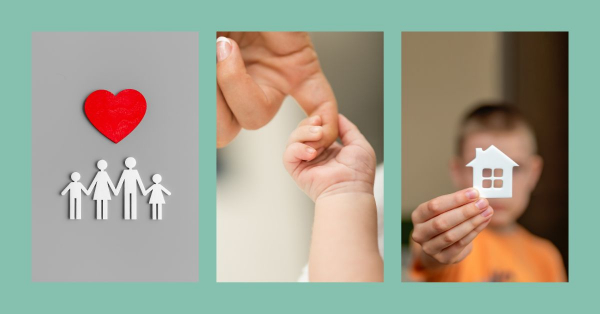Fetal Alcohol Syndrome and Your Adopted Child
Does your child struggle with poor coordination, hyperactive behavior, poor impulse control, and learning disabilities? Were they born at a low birth weight and struggled to gain and keep weight on? It could be for any number of reasons. All of those symptoms are diagnostic criteria for a number of disorders. However, if they’ve been tested and doctors can’t seem to find a cause for the struggle, it might be worthwhile for you to see if you can rule out fetal alcohol syndrome (FASD).
To be clear, fetal alcohol syndrome is caused by drinking while pregnant. However, knowing, or not knowing if that was the case for your adopted child isn’t necessary in finding a diagnosis. There are also other diagnostic critera a doctor can lean on to find a diagnosis. This is in no way me trying to mom shame. Pregnant women are objectified enough as it is for me to want to lay yet another social woe at our feet. Unplanned pregnancies, especially, because they may be unknown to the mother, may lay grounds for alcohol exposure during pregnancy. Regardless, if you have a relationship with birth parents it could be worthwhile asking if they were aware of their pregnancy early on and if they consumed alcohol while pregnant.
Fetal alcohol syndrome can’t be cured, per se, but the symptoms can be managed. Often for us, simply knowing the correct label helps us respond in the most helpful way. We suspect one of our daughters has fetal alcohol syndrome, but there are enough other data points to pull together it doesn’t matter if we bring that one into the mix. It simply helps us understand more how her brain works.
Because adoption comes with many unknowns, as I’m certain you’ve already realized, diagnosing FASD can be a struggle. Especially if the child’s pediatrician is unfamiliar with the symptoms of FASD, they may be reluctant to assign a label if they think the diagnosis could be something different. You might need to ask for a referral to someone who is familiar with and has treated children with FASD.
While there is no cure for FASD (due to the damaged neurons and brain matter not being able to regenerate, in part), there is hope. You may utilize early intervention services, often used for children who are developmentally delayed or are thought to be on the Autism spectrum. There is medication that can help manage symptoms. As I said earlier, there is a good amount of overlap in symptoms between FASD and other more common mental health issues.
The CDC also states that protective factors can go a long way to help a child that is diagnosed with FASD. Those can include being diagnosed before six years old; iving in a loving, happy, nurturing, and stable family environment; not being exposed to violence; and having the child involved in special education services. The last can be accomplished only with an official diagnosis of something that meets the school’s criteria for services. Therefore it is well worth your time and effort to seek out a diagnosis. Our children went from having no supports to having every support we could think to ask for after we had an official diagnosis in our hands.
So, that’s the technical bit. Here’s the emotional one. Fetal alcohol syndrome and it’s assorted symptoms suck. I have a kid that I cannot be logical with. She does not understand and she does not learn from her mistakes. She doesn’t understand why people dont want to play with her. She struggles to empathise with her peers. It makes our life a living nightmare sometimes. There is no nice way to say it. She’s difficult and frustrating to live with at times.
However, knowing what we know, we are able to adjust our expectations. Some days she is mentally about half her age. Others, she seems on par with or surpassing her peers. She can go from happy to furious in a breath. But we know she can’t really help that now. We understand she is struggling at least as much as we are. We can offer her the support she needs to thrive. We can get her the help we are personally unequipped to provide.
If your child is exhibiting symptoms like the ones mentioned, it is worth asking a second or third opinion to make sure the correct things are being treated. Unlike physical issues, there is no way to measure or gauge the exact things that are wrong and provide the exact treatment to fix them. It is all, unfortunatly, trial and error. It can almost feel hopeless.
Adoption wasn’t pitched to me as this difficult, lifelong struggle to get my kids the things they need. I wasn’t prepared to need to advocate for them wherever we go. And I can’t Pollyanna my way out of this. Some days there are no good sides. I love my kids. I protect them fiercely, and will fight anyone that gets in their way. But some days, the only thing I can hold on to is that eventually it will be bedtime and eventually they will get older and understand more (hopefully) and eventually I will learn to not take it personally when someone throws a book at my head because I asked her to do her math homework.
No, no one suggested it would be this hard and some days I resent it all. I resent the circumstances that resulted in her haing FASD. I resent the foster care system that failed her again and again. But I am thankful she is my daughter. I am glad I get to fight this fight for and with her. She is worth it for no other reason than because she is a child and its my job to make sure she’s protected. Every child deserves that–even the ones that tell me they wish I was dead.
Hang in there parents whose kids are struggling. You’re doing good work.








